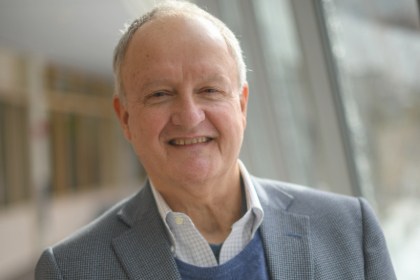(MAY 9, 2024) Richard Rawson, Ph.D., professor of psychiatry, commented to WBUR about a smartphone app being piloted by DynamiCare at CODAC Behavioral Healthcare in Rhode Island that pays addicts to stay off drugs.

Richard Rawson, Ph.D., professor of psychiatry
(MAY 9, 2024) Richard Rawson, Ph.D., professor of psychiatry, commented to WBUR about a smartphone app being piloted by DynamiCare at CODAC Behavioral Healthcare in Rhode Island that pays addicts to stay off drugs.
The app lets recovering addicts earn cash rewards—typically a few dollars at a time—for keeping clinic appointments, completing self-guided lessons on avoiding triggers, and recording saliva-based drug tests. The app developed by a Boston-based tech company uses a type of motivational intervention called contingency management, because rewards are contingent on abstinence.
But while DynamiCare’s program appears promising, experts say, its accessibility and effectiveness is still not known. And some of the state’s own advisors say Rhode Island’s program is not reaching the people most in need of help.
“Ninety-nine percent of the research [on motivational incentives] has been done … with human beings interacting with other human beings,” said Rawson, where the motivational intervention known as contingency management was pioneered in the 1990s. “Because all 19-year-olds know how to use apps, doesn’t necessarily mean that people who are 50, who have lived on the street for the last 10 years, if you put a app in their Obama phone, whether they’re going to be able to use it.”
Read full story
at
WBUR, Boston’s NPR